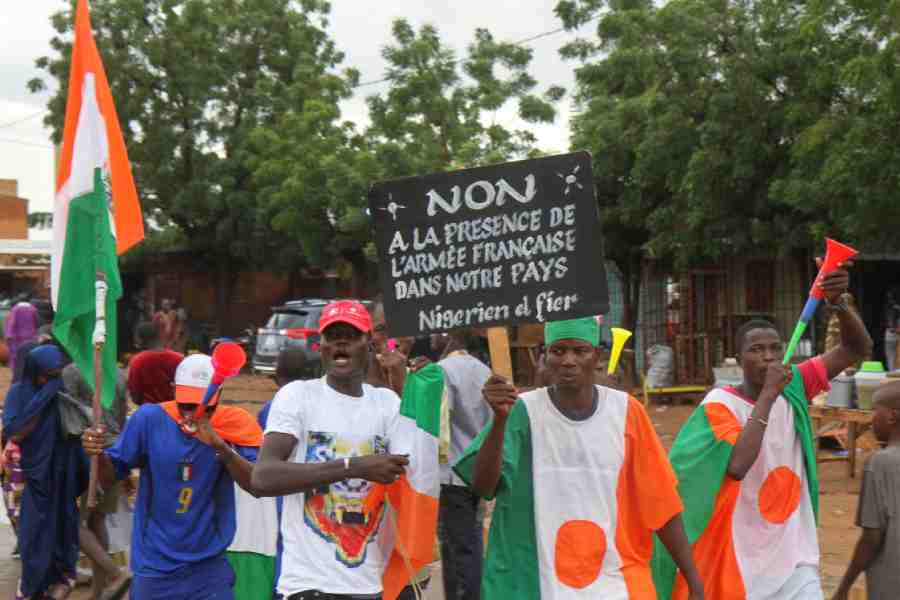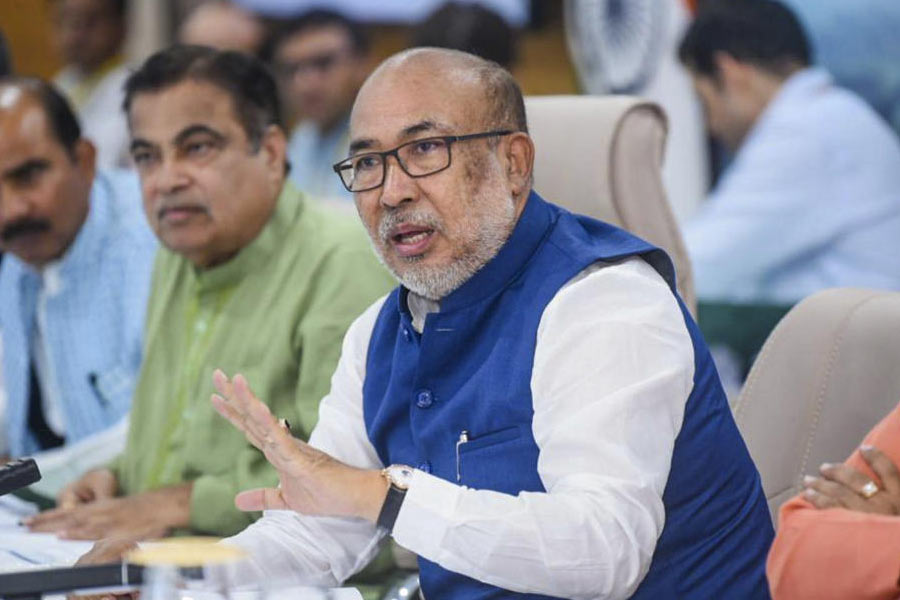Momentous changes are occurring in Africa. Other countries of the Global South, after a period of dirigisme development following decolonisation, were reintegrated into an international order dominated by globalised capital, and the crisis of this order is now producing a restiveness among them; but Francophone Africa had witnessed only limited decolonisation. It acquired nominal political independence, but continued to remain under French tutelage.
This tutelage was exercised through three different mechanisms. The first was the stationing on a permanent basis of French troops in each of these countries. The second was the institution of an economic arrangement, which robbed these countries of all autonomy in economic policy-making. And the third was French political interference in the affairs of these countries, including through such nefarious actions as coups and assassinations, to keep out, or get rid of, recalcitrant governments.
Central to the economic arrangement was the adoption by these countries of a currency, the CFA franc, which had a fixed exchange rate originally vis-à-vis the French franc and, later, vis-à-vis the euro. The fixity of the exchange rate not only ruled out the use of the exchange rate and tariff policy but it also meant that the fiscal deficit had to be reined in, thus limiting the use of fiscal policy. Since monetary policy, notably the interest rate, could not be used at will anyway, having to be aligned with that of France, virtually every economic policy instrument was taken out of the hands of these African governments. In addition, they were statutorily made to deposit half of all their foreign exchange reserves with France, which therefore, like colonial Britain, had the use of these reserves for its own purposes. The governments of these countries could do nothing to stimulate growth or promote policies augmenting the people’s welfare; and with the European Union’s own growth slowing down greatly after the collapse of the American housing bubble, Francophone Africa too got mired in stagnation, to a point where the per capita real income in a country like Niger today is reportedly no higher than that in 1960 when it became nominally independent.
Thomas Sankara, the iconic Marxist revolutionary who came to power in Burkina Faso, wanted French troops out of his country, but he was overthrown and assassinated in a coup by one of his own followers, allegedly with French connivance. It is not just that the countries in question were made to have pliable governments; these governments, in turn, were organised into a body, the Economic Community of West African States, which played a sort of supervisory role on behalf of imperialism.
Not surprisingly, the political process gets devalued in these countries over time, with politicians, even when elected through democratic means, being busy feathering their own nests while acting on behalf of metropolitan interests; it is in the armed forces that one finds ideological opposition to colonialism. The anger of the youth in these countries that is impatient with their continued subservience to the metropolis and with the politicians complicit in perpetuating it often finds reflection within the armed forces. Paradoxically, the people’s sentiment against colonialism often expresses itself in the form of military coups replacing democratically-elected governments; and the colonial power’s intervention in defence of its hegemony acquires vicarious justification as a defence of democracy against military rule even when the military rule is more popular than the democratic government it has ousted.
After Mali and Burkina Faso, the latest country witnessing an anti-colonial military coup against a democratically-elected government is Niger. France, naturally, is crying hoarse against the overthrow of Nigerien democracy, and so, ironically, is the United States of America through Victoria Nuland, the very person who had organised the Maidan coup in Ukraine in 2014 against the democratically-elected government of Viktor Yanukovych. But a survey reported in The Economist of London shows that 73% of the Nigerien population supports the coup against the democratically-elected government; and the thousands pouring into the streets in demonstrations against French colonialism only confirm the coup’s popularity.
This is hardly surprising: the ousted president, Mohamed Bazoum, was so solicitous of French interests that when Mali and Burkina Faso expelled French troops from their countries, Bazoum invited those troops to come and station themselves in Niger; he was also complicit in Niger’s emerging as a major base for US troops in West Africa. He was, in short, wholly out of sync with the Nigerien people’s anti-colonial mood.
While France and the US have not ruled out military intervention, belligerence against the new Niger government at present is coming most vociferously from ECOWAS whose partiality towards the imperialist powers is evident from the fact that while it was extremely mild in its criticism of an earlier coup in Burkina Faso by Paul-Henri Sandaogo Damiba who was pro-Western, it has threatened dire consequences against the Nigerien coup leaders and has already imposed sanctions against that country. Against the ECOWAS threat, not only have Mali and Burkina Faso promised to intervene militarily on the side of Niger if it is attacked but have also moved to form a union with it as part of their commitment to pan-Africanism.
Africa is astir. Slogans that have not been heard for ages are again in the air. Che Guevara’s name is once more on the lips of a third world leader, this time Ibrahim Traoré of Burkina Faso. International affairs ‘experts’, alas even the best of them, see all this only as a move from ‘unipolarity’ to ‘multipolarity’, as if the African people’s agency did not count.
Prabhat Patnaik is Professor Emeritus, Centre for Economic Studies and Planning, Jawaharlal Nehru University, New Delhi










